Game Art BA(Hons)
Become an industry-ready game artist.
Course overview
On this Game Art degree, you'll master the creative and technical skills to succeed as a digital artist. Using industry-standard tools including Adobe Photoshop, Maya, ZBrush, Substance Painter and Unreal, you'll develop expertise in character, concept and environment art, 3D modelling, UV mapping, baking, composition and shading.
In the second and third year of the Game Art degree, you’ll showcase your skills as you contribute to a major game development project. You’ll graduate from the course as a confident, industry-ready game artist, equipped to join one of the fastest growing sectors of the games industry.
Why study this course at Falmouth?
- We’re experts in our field – Achieving a top ranked status for Concept Art and Game Design and Development (Rookies Global Rankings 2024)
- You’ll study in one of the largest and best-equipped dedicated game-making spaces of any UK university, with access to industry standard hardware and software
- Our industry-focused approach means you’ll team up with creative talent to produce real games while you study, and you’ll keep the Intellectual Property (IP)
- You’ll learn from professional artists, game art practitioners and developers who have worked on titles such as Grand Theft Auto, World of Warcraft and Project Gotham Racing.
- You’ll have opportunities to network with industry giants and games fans through our epic guest speaker programme and annual Games Academy Expo
- Our graduates have worked at studios including Build A Rocket Boy, Fireproof, Free Radical Design, Frontier Developments, Splash Damage and 10:10 Games
Lead images: Daniel Truman, Louis Sullivan, Reidun Rian.
Course details
On this course, you'll study the principles of game art in the context of traditional art practice, combining subjects like life drawing and composition with digital 2D and 3D modelling. We'll also build your expertise in concept, character and environment art, agile project management, and game development pipelines and processes.
Focused on industry practices, much of your learning will come from working in game development teams – devising and developing real games using real-world practices.
Course study options
You can gain your Game Art BA(Hons) degree in three years or choose to add an Integrated Foundation Year and/or professional placement year. Discover the full course details for each study option, below.
Accolades and awards
Falmouth University's Games Academy was ranked in the Top 13 games schools worldwide and No.1 for Games Design in England, by the Princeton Review.
We are also ranked in the 2024 Top Creative Schools by The Rookies, and proud to be an Academic Partner with Unreal Engine.
The Rookies - Global School Rankings
The Games Academy at Falmouth University is proud to be a top ranked school in the 2024 Global School Rankings by The Rookies.
Achieving a top ranked status in the following categories:
- 2024 Top Creative Schools – Concept Art
- 2024 Top Creative Schools – Game Design & Development
The Games Academy at Falmouth University is proud to be an Academic Partner with Unreal Engine.
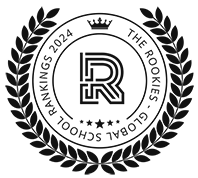 |
 |
This course is also TIGA accredited.

During the first year of your Game Art degree, you'll build the basic skills demanded by the industry, and learn about game artists' major roles and techniques. Working with industry-standard software, methods and processes, you'll develop your drawing skills, better understand anatomy, and apply these abilities to 3D modelling and related elements.
You'll learn traditional and digital art skills – both 2D and 3D – alongside concept, environment and character art to build digital worlds and characters.
Modules
Concept Art 1
In this module, you'll be introduced to the techniques and styles used in the creation of concept art for games.
You’ll explore colour theory and composition, digital painting, storyboarding and graphic design principles while learning about contemporary and historical trends in the history of game art. You’ll also gain an understanding of common visual communication models used in the making of concept art.
Character Art 1
Undertaking a series of practical sessions, including life drawing classes, you’ll learn the core principles of character art, while gaining an understanding of anatomy and proportion.
You’ll then apply these principles to the development of your own character art and explore methods of character sculpting within the game development pipeline.
Environment Art 1
This module introduces you to the basic principles of environment art for games. You’ll undertake a series of practical assignments, exploring key techniques in 3D art, scene setup, modelling, UV mapping, texture creation, materials and shading.
You’ll then apply these methods to produce high-definition assets for use in the game development pipeline.
Concept Art 2
Strengthening your understanding of concept art and visual culture, in this module you’ll undertake practical assignments to develop your 2D art skills.
You’ll learn where concept art fits within the development pipeline, as well as explore methodical approaches of making concept art - such as semiotics.
You’ll also develop key skills in using industry-standard software, digital tools and materials, including collage and digital speed painting to produce effective visual designs.
Character Art 2
Building on your knowledge of creating character art for games, you’ll sharpen your skills in figurative art, anatomy, line, tone and proportion through life drawing sessions.
You’ll also develop your technical and artistic skills in 3D character development using a range of software and digital tools.
Environment Art 2
Through a series of practical sessions, you’ll develop the skills to create technically accurate and exciting environment art for games.
In addition, you'll learn about hardware limitations, export-based pipeline, and baking methodologies for game assets, including texturing techniques, rendering, lighting and shadows.
You'll grow your confidence in game art and your skills in using professional digital tools. You'll provide art assets to a collaborative project with game students of different disciplines, giving you valuable experience in an industry-style development pipeline.
An additional specialist practice project lets you hone your skills in a particular area of game art and create high quality work for your portfolio.
Modules
World Building: Pre-production
Working in a multi-skilled team, you’ll devise a concept for a digital ‘world creation’ project. You’ll also develop a broader understanding of key game art principles, including world-building and exploratory concept work, prototyping, pre-production, and the early phases of production.
Developing Concept Art Vocabularies
In this module, you’ll bring your existing understanding of concept art and visual culture into a game production context. Working in a team, you’ll develop your 2D skills and explore new and experimental media.
You’ll also develop your proficiency in using industry software and tools to improve your skills in collage and digital speed painting as well as explore new 3D approaches to making concept art.
Developing Character Art Vocabularies
Deepening your knowledge of character art for games, you’ll continue to use a combination of digital tools and life drawing sessions to sharpen your observational skills in anatomy and proportion.
You’ll also advance your knowledge of game development pipelines and processes, including using the iterative development model as a method to critically evaluate your own work.
Developing Environment Art Vocabularies
You’ll research and experiment with a range of techniques and practices in the creation of environment art for games.
With guidance from your tutor, you’ll choose an area of focus and produce a research brief proposal. You’ll then create a portfolio and a written analysis of your own work.
Art Research Practice
This module will focus on using practice-based research as a tool to develop your practical production skillset, as well as build skills in pipeline and workflow research.
You’ll choose an area of game art or animation practice to research and identify appropriate technical pipeline resources and workflow examples to inform your development. Research of your chosen production pipeline will be evidenced through a written report and portfolio of work.
World Building: Production
Working in a multi-skilled team, you’ll continue to develop your ‘world creation’ project that you started during the previous study block.
You'll deliver content in line with production milestones and prepare to release your product and reach your target audience.
Portfolio Development
In this module, you’ll work on a self-devised portfolio piece with a view to submitting it to an industry competition.
From researching to execution, you’ll hone your skills and gain confidence as you develop your project within your chosen specialism. Experimenting with different techniques, you’ll build your portfolio and create a piece of work that conforms to industry norms.
You can choose to take an optional professional placement after your second year on a three-year programme, or after your third year if you’re studying for a degree with an Integrated Foundation Year.
You’ll be responsible for finding your own placement, with support from the Employability team.
Choosing this option will enhance your industry experience and skills while studying.
How you’ll study during your professional placement
You’ll spend time working in a professional context, as part of a business or organisation. This can be in one role, or up to three, and must be for a minimum of 24 weeks.
You’ll develop in-demand workplace skills, deepen your insight into industry and grow your network of contacts, all of which could help you get ahead in your career after graduation.
Throughout this year, you’ll develop a portfolio of work that includes critical self-reflection on what has been learned from the experience. You’ll be required to evidence your experiences, the skills you’ve learned and your professional growth.
With specialism, independence and professional practice at the front and centre of this year, you'll join a multi-skilled team on a game development project. Working in a studio, you'll contribute art assets using industry-standard methods and pipelines.
You'll also create distinctive and polished work for your growing portfolio by working on specialist game art. We'll then help you commercialise this work and prepare you for the transition to professional life.
Modules
Future Skills
With your career in mind, you’ll develop a commercial awareness and entrepreneurial mindset.
You’ll explore employability options, including researching the skills required to set up your own business, establish yourself as a freelancer, or for use as an employee in a business or organisation.
Professional Portfolio
Deepening your knowledge of enterprise opportunities within the industry, you’ll receive mentoring on how to apply for work in industry, including CV and portfolio advice to help you graduate with an industry-ready portfolio.
Technical Art Practice
In this module, you’ll explore the role of a technical artist and where they fit in the game production pipeline.
You’ll also delve into the different aspects of technical art, including production processes, tools, 2D, 3D, procedural modelling and VFX.
Future of Games
You'll critically examine the current climate of contemporary games and digital culture, while exploring cultural and technological changes that are likely to influence the future of the games industry.
In doing this, you’ll confront a range of issues relating to sustainability and ethical production, equality and civil rights, and personal identity and ideology.
Major Collaboration
At this stage of your Game Art degree, you’ll deliver a substantial collaborative project. Working in a multi-skilled group, you’ll design and build a digital product or service.
Contexts vary, but the project might include enterprise solutions, mobile apps, installations, games, web applications, robots, immersive experiences or software development tools.
Why study an Integrated Foundation Year route?
If you’re taking on a new subject that you haven’t studied in depth before, have been out of education for a while or have a non-standard educational background then an Integrated Foundation Year degree may be the right choice for you. It is a four-year degree with an Integrated Foundation Year to start, which allows you to explore the primary elements of your subject before progressing on to the remaining three years of the BA(Hons) degree.
What you'll study in your Foundation year
If you choose this pathway, you'll study five core modules in your Foundation year. These are all designed to help you explore the foundational elements of your subject. You'll gain relevant technical skills, learn to experiment and take risks, develop an understanding of professional practice, have opportunities to work across disciplines and collaborate with other students on live project briefs.
Modules
Explore
You'll begin your foundation year by working collaboratively with others to explore themes of the future. You'll take risks, experiment through play and be supported to break through barriers.
Technique
You'll take subject-specific workshops and develop essential technical and practical skills in your area of study. You'll also enhance your analytical and organisational abilities.
Apply
You'll work with your peer group to think beyond discipline by addressing a societal or global issue. You'll then showcase your work to your peers and deliver and accompanying evaluation of your process.
Industry
You'll enhance your creative and practical skills in your subject specialism by responding to typical industry briefs, underpinned by focused research and experiments. You'll also gain industry insights through guest lectures and workshops.
Launch
You'll develop your unique identity in your specialism through the production of a self-initiated body of work. Your final project will be the bridge to your next year, fully supported by evaluative reviews and critical analysis of the work you have created.
After the Foundation year, you progress into Year One of the full three-year degree, equipped with a deeper knowledge of your subject, a clear understanding of your strengths, and develop a practical and technical skillset and the confidence to excel in your chosen subject.
If you apply for and enrol onto a degree with an Integrated Foundation Year, you’ll have the option to switch onto a five-year version including a placement year. That means you’ll complete the first three years of your course before completing a placement in industry in your fourth year and returning to Falmouth for the fifth year of your programme.
As part of our process of continuous improvement, we routinely review course content to ensure that all our students benefit from a high-quality and rewarding academic experience. As such, there may be some changes made to your course which are not immediately reflected in the content displayed on our website. During your course, module content may be updated or optional modules withdrawn in order to maintain the best academic experience. Any students affected will be informed of any changes directly.
Meet Andy, a final-year Game Art student at Falmouth University, as he shares the inspiration behind Brine - a student-made game that serves as a love letter to Cornish culture.
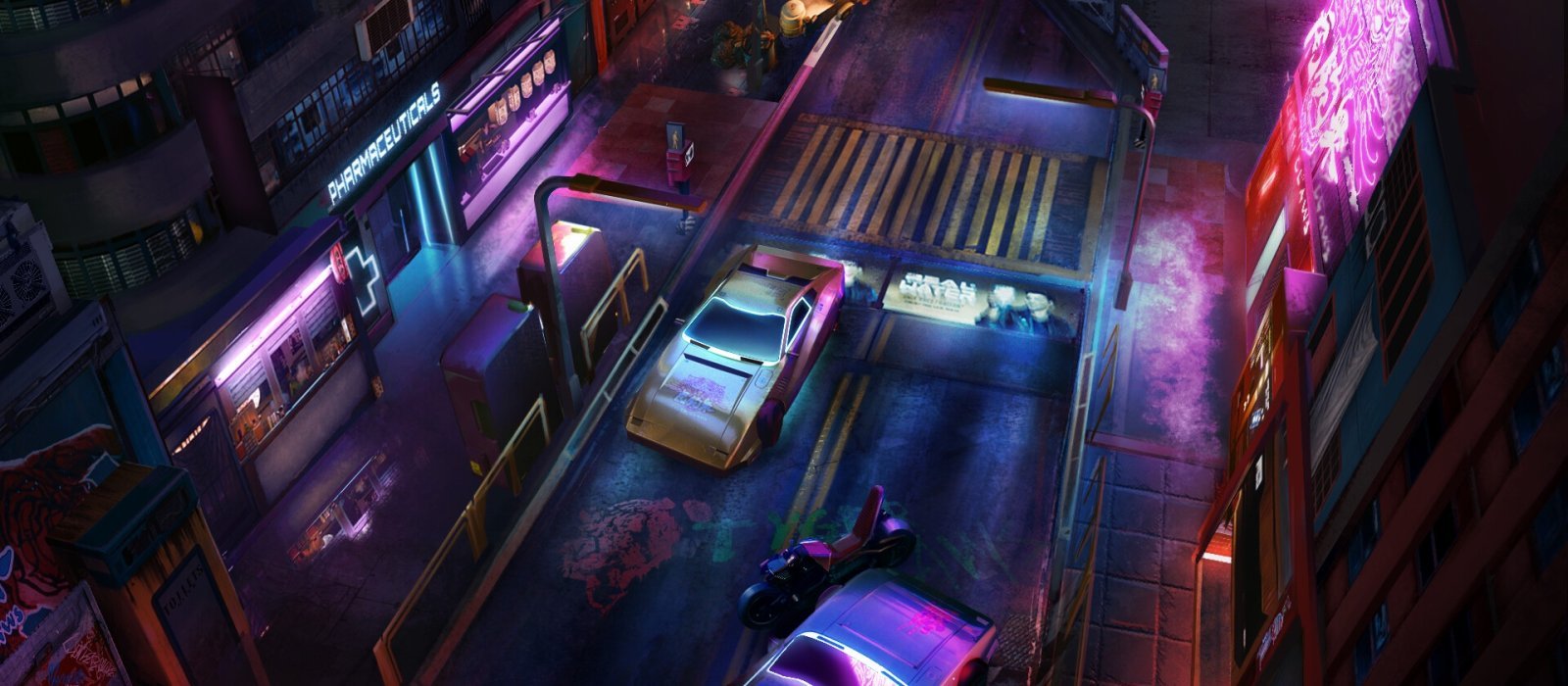
Work by Oliver Gisborne
How you'll learn & be assessed
You'll learn through lectures, seminars, workshops, group and individual tutorials, and tutor and peer feedback on your work.
Both individual and collaborative study are key components to this degree. As you progress through your Game Art degree, you'll focus and develop a distinctive practice. With your basic skills in place, you'll be able to work and experiment within game development teams – meaning you can apply your practice to professional game making.
At Falmouth, we use a 'digitally enhanced learning & teaching' approach. Your experience will always be predominantly in-person, including seminars, tutorials and studio teaching, with some, more targeted elements, being online either live (synchronous) or pre-recorded (asynchronous). You can read more here.
100% of your assessment will be coursework.
Assessment methods
- Foundation year assessments are 100% coursework based
- Continuous assessment with no formal examinations
- Visual, verbal and written assignments
- A portfolio of personal and group project work is developed over the course of the degree to boost your employability
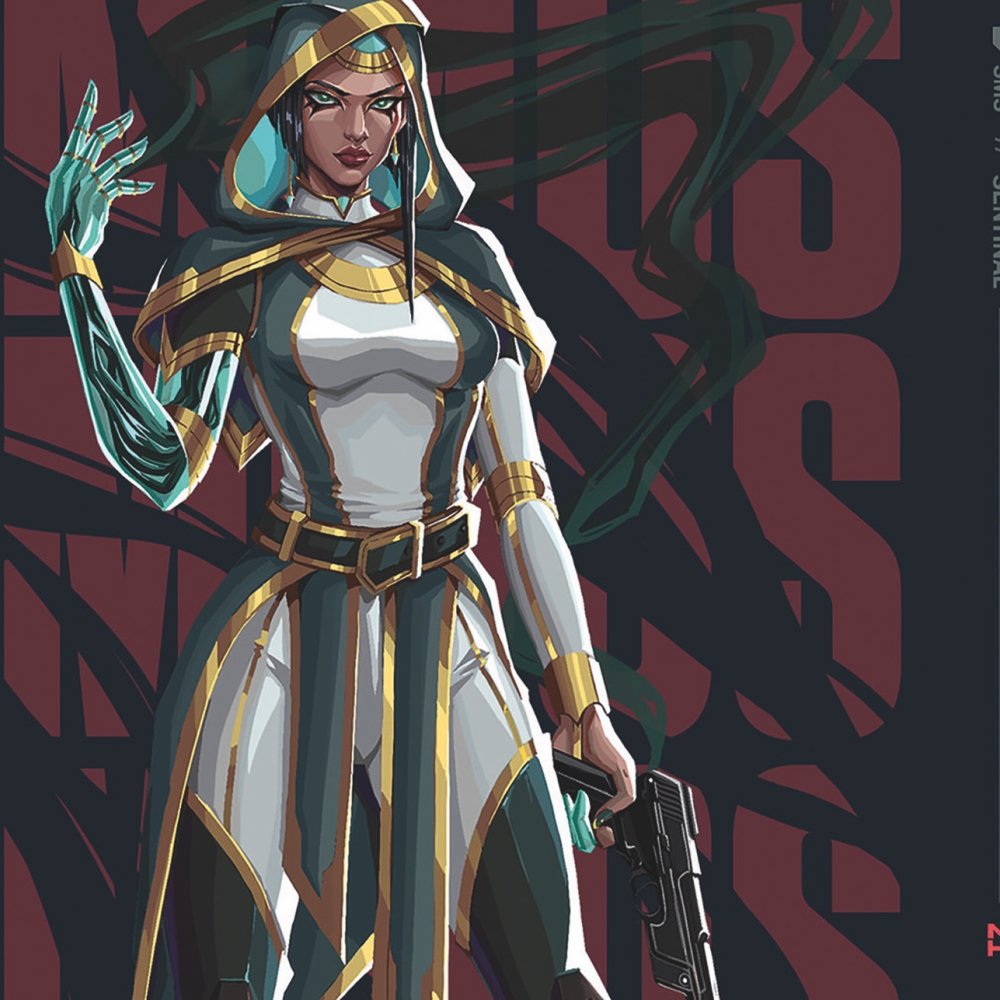
Work by Amelia Pegrum
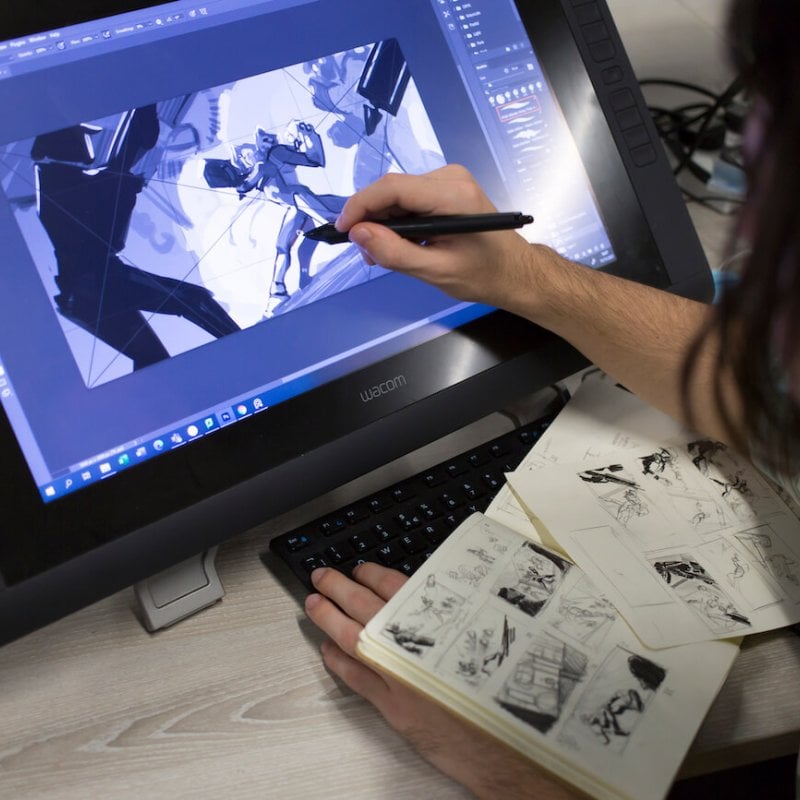
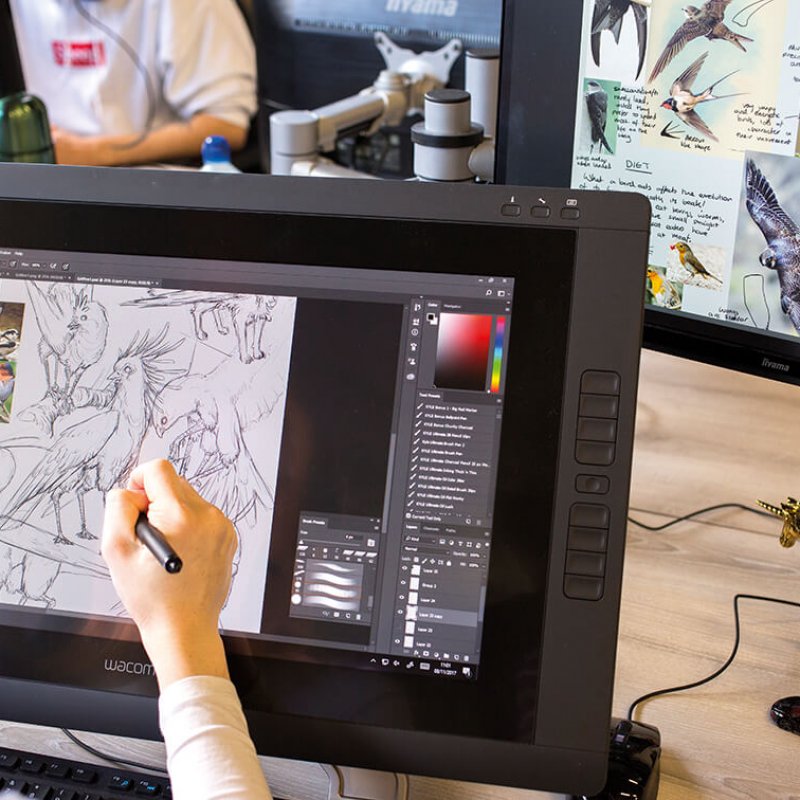
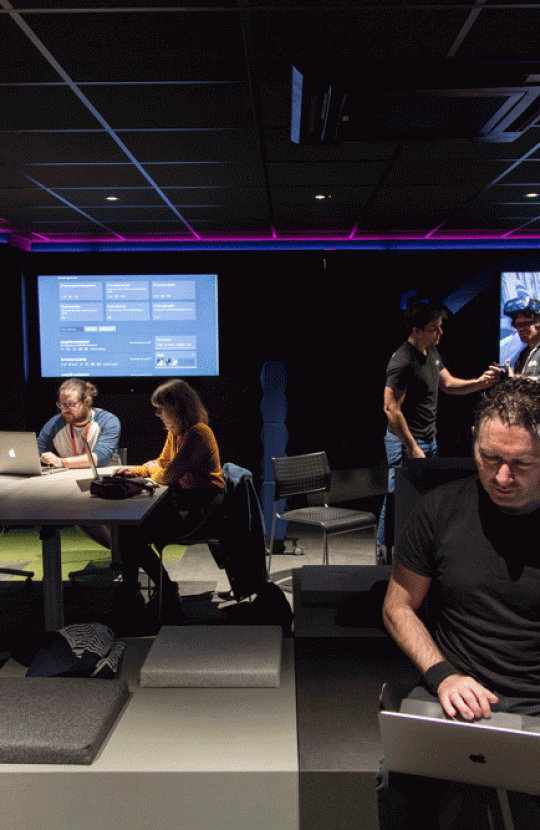
Virtual tour
Discover where you’ll spend your time as a student with our 360° tour, showcasing our facilities, accommodation, town and scenery.
Facilities
- Rokoko Smartsuit Pro 2 motion capture suits, including Smartgloves and Face Capture.
- Large studio equipped with regularly updated, state-of-the-art game development machines.
- Life drawing studio for artists and weekly life drawing sessions.
- Specialised computing hardware for game development, motion capture and immersive experiences.
- Access to standard packages used in software development for the games and visual effects industries, including the Adobe and Autodesk suites and Maxon ZBrush.
- Access to industry-standard game engines including Unity and Unreal Engine 5.
- Attached lab committed to staying at the cutting edge - featuring AR, VR and MR (XR) equipment including HoloLens, HoloLens 2 and Meta Quest 3 & 2.
- Attached lab with access to PS5 development and testing kits.
- Studios open late during term time.
- Access to free software.
- Technicians on-hand during opening hours to assist with the different tools.
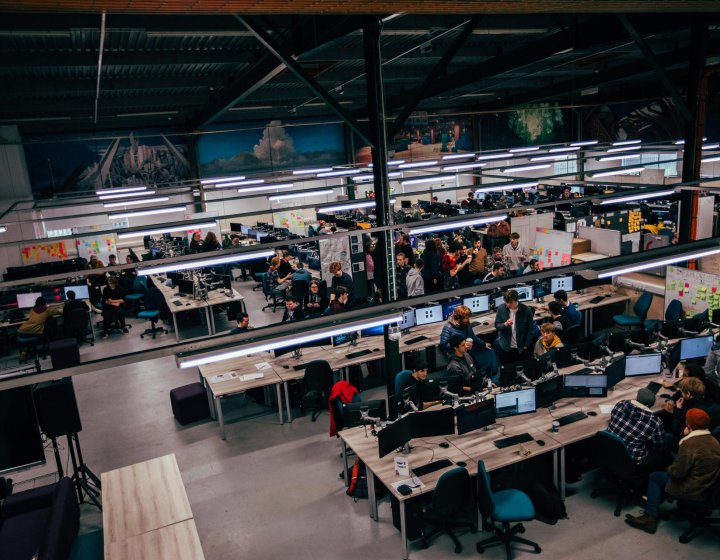
Games Academy Facilities
Our Games Academy offers professional-standard studios, a dedicated craft room, breakout spaces, and...
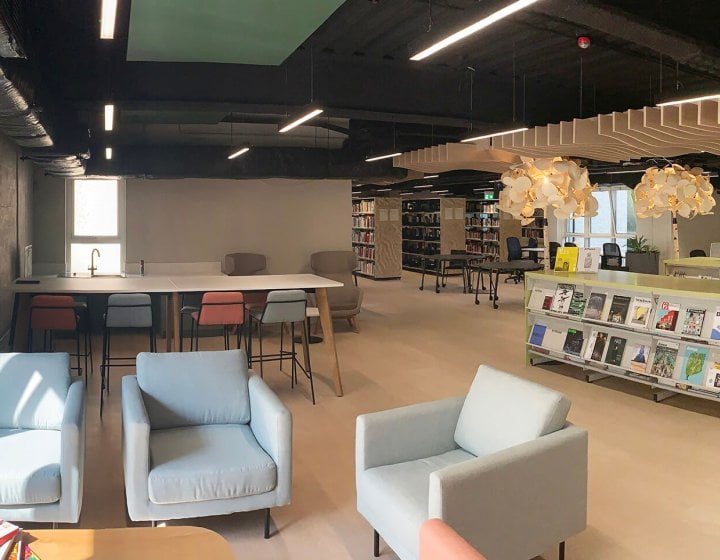
Library Facilities
Offering extensive collections, our two libraries provide a wealth of digital resources, magazines, ...

Sports Centre
Our Sports Centre, on Penryn Campus, includes a spacious gym with up to 90 of the latest, new statio...
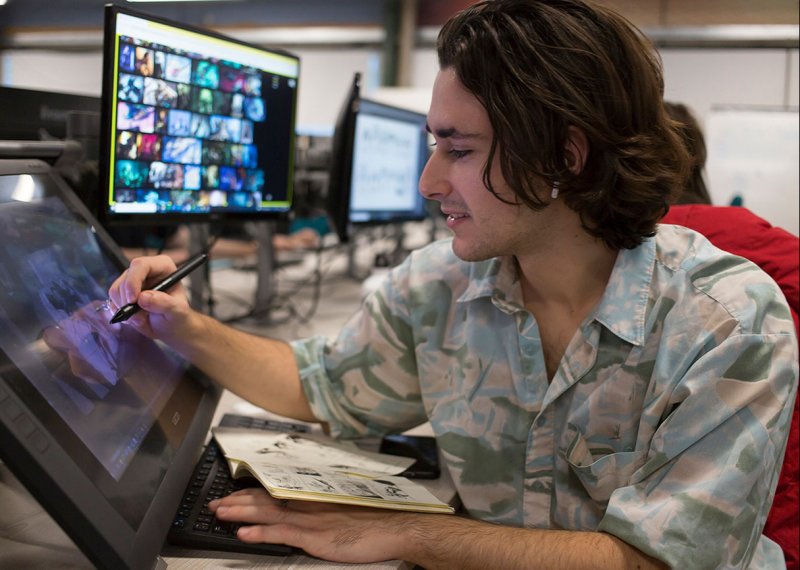
Gaming is the fastest-growing form of entertainment, with over 2.5 billion video gamers globally.
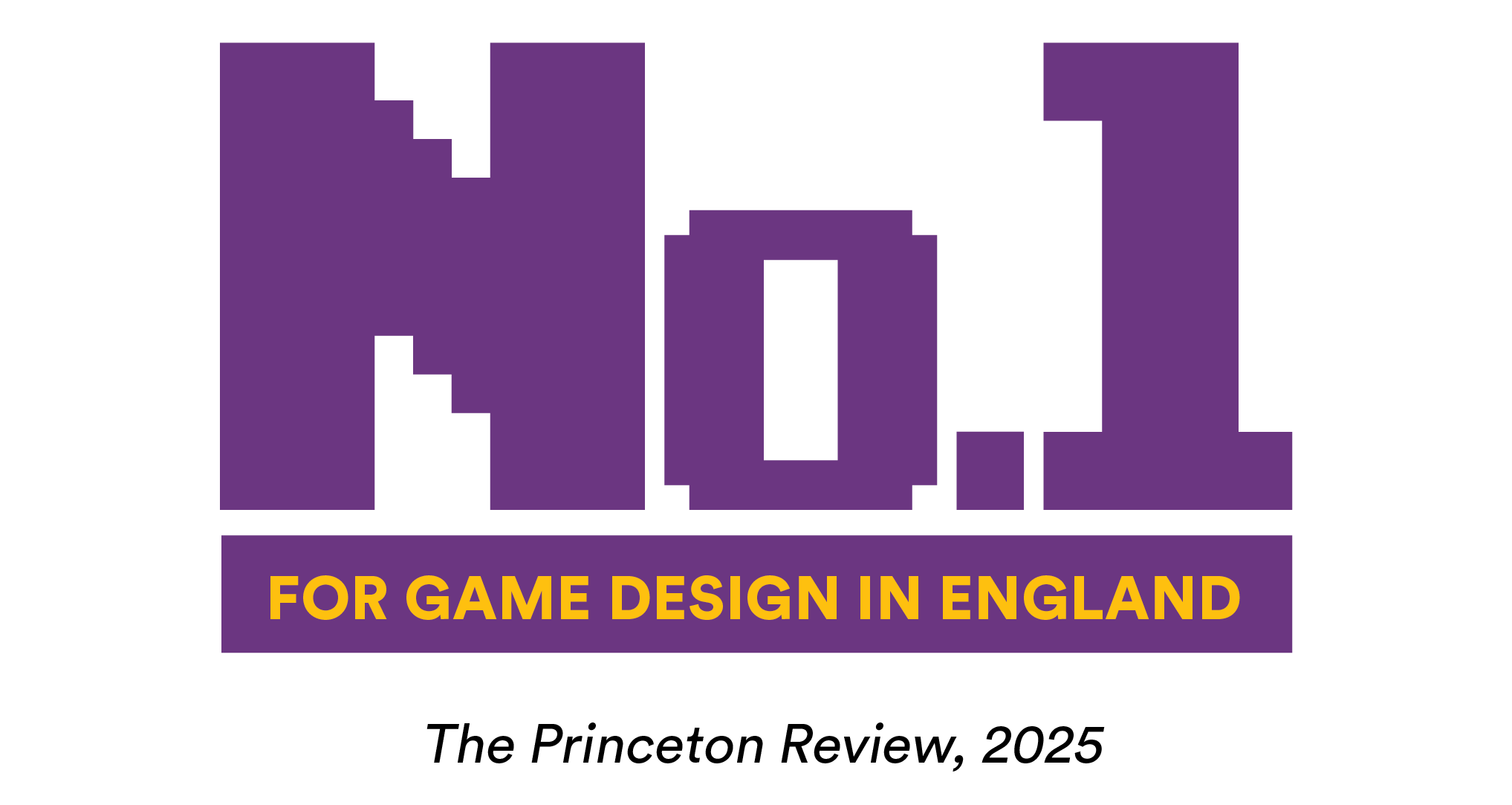
Stories from our community
Explore student projects, graduate successes, staff news and industry insights
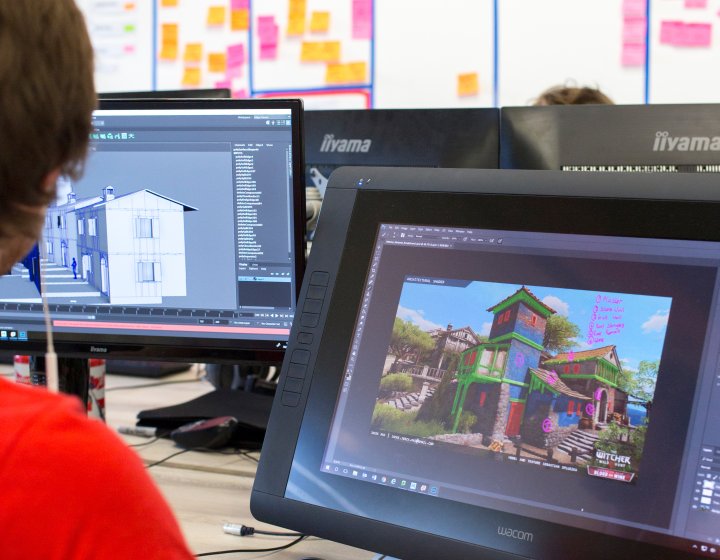
Studying Game Art at Falmouth University
29 May 2025
Despite not knowing exactly what I wanted to study at University, I knew I wanted to do a digital ar...

Game Development graduate on making retro games and his YouTube following
29 January 2026
From building minigames in LittleBigPlanet as a teenager to releasing homebrew (unofficial hobbyist)...

Why I returned to study an Indie Game Development master’s while teaching
27 January 2026
After years working across games and education, Jess Bradshaw chose to return to study with a clear ...
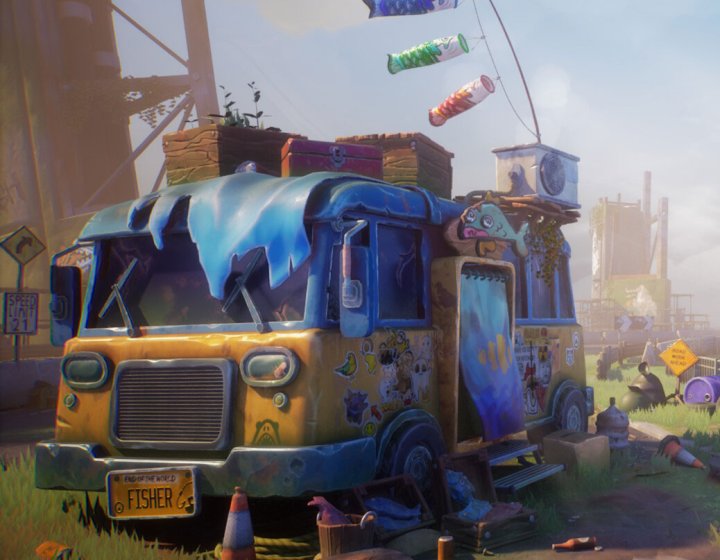
Game Art graduate reaches finals in international team challenges
20 January 2026
BA(Hons) Game Art and MA Game Art graduate Eden Gates has reached the finals of two team-based game ...

Game Development Writing graduate builds career in community management
25 November 2025
For Liam Gregory, studying Game Development: Writing BA(Hons) at Falmouth opened the door to far mor...
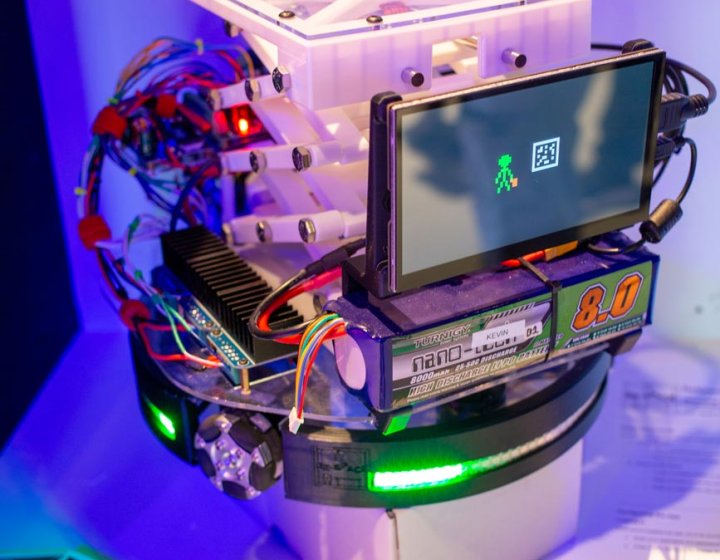
What is Creative Computing?
24 November 2025
Senior Lecturer in Computing, Matt Watkins explores what creative computing is and how it’s transf...

Falmouth University awarded £1.4m to power the future of creative design and manufacturing
18 November 2025
New state of the art design and advanced manufacturing facilities for students at Falmouth Universit...
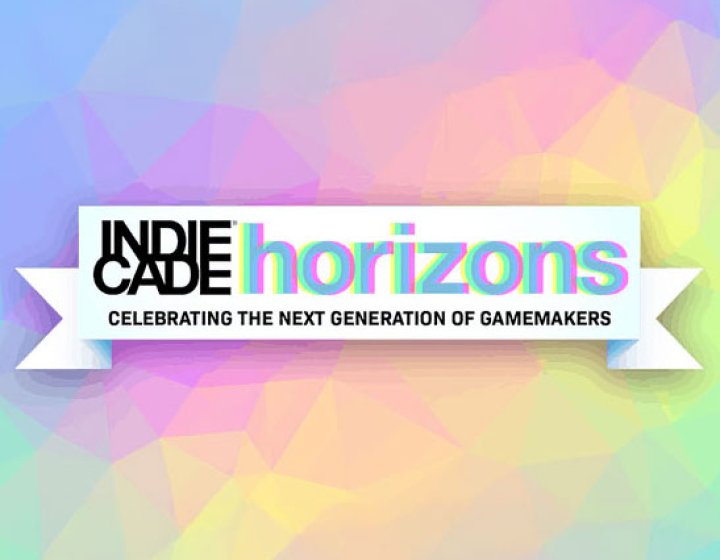
Dr William Huber honoured with Horizons Faculty of Excellence Award
11 November 2025
Falmouth University’s Associate Professor of Game Studies, Dr William Huber, has received internat...
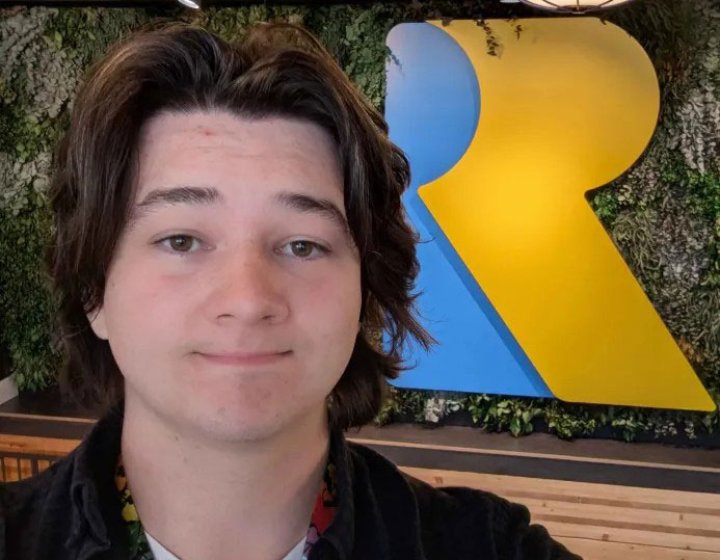
Game Animation student on joining renowned games studio
06 November 2025
Since graduating from Game Animation BA(Hons) at Falmouth, Brendon Chadwick has landed a dream start...
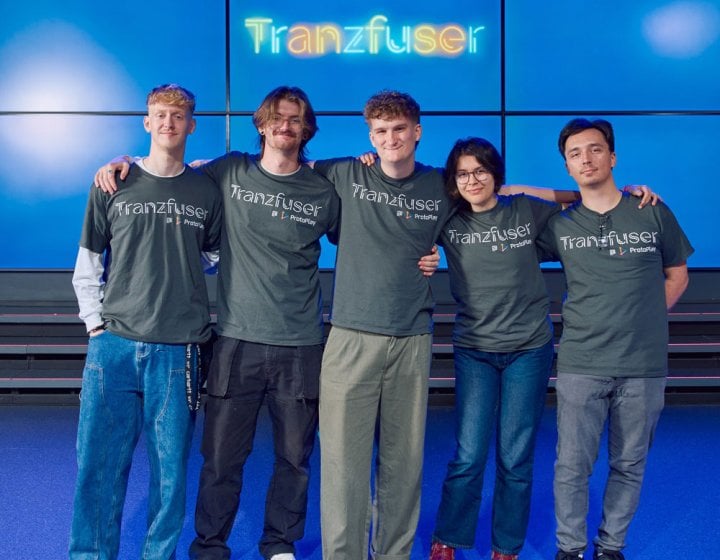
Games Academy graduates win national Tranzfuser competition
04 November 2025
Studio Whalefall, a team of Falmouth Games Academy graduates, is celebrating success after winning T...
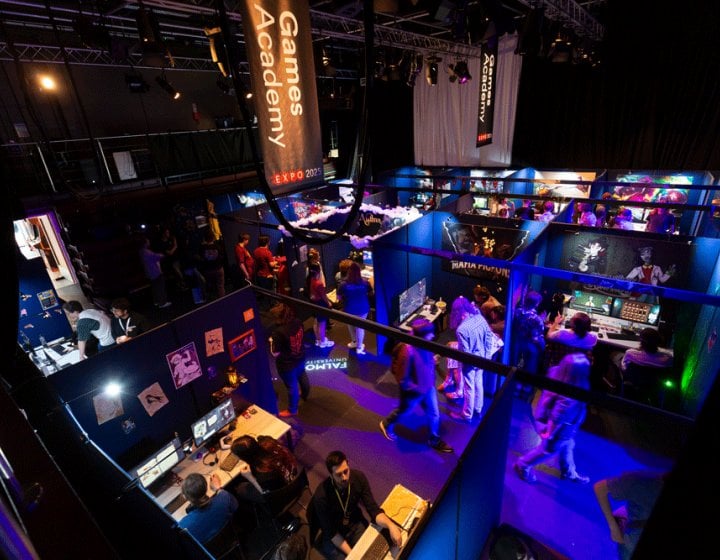
A catalyst for creativity and innovation: a decade of Falmouth University's Games Academy
21 October 2025
When Falmouth University launched its Games Academy in 2015, it did so with a bold premise: that gam...
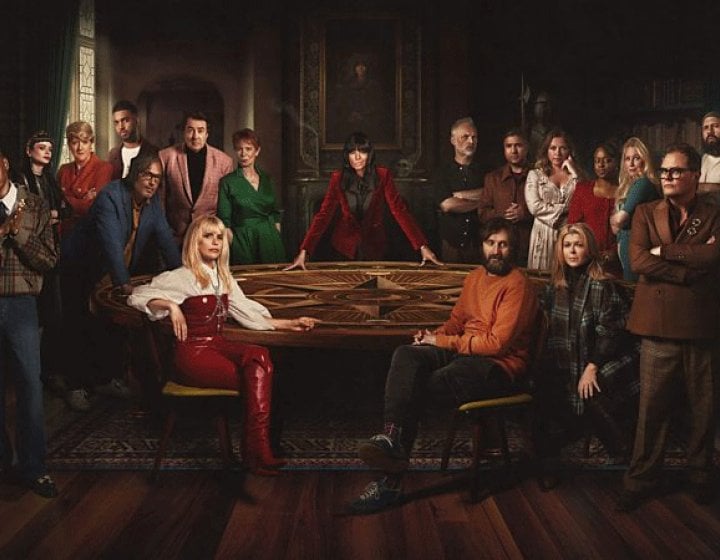
Playing the Game: What Celebrity Traitors reveals about strategy, authenticity and the self
16 October 2025
When The Traitors first appeared on television, few could have imagined that a game once played in t...
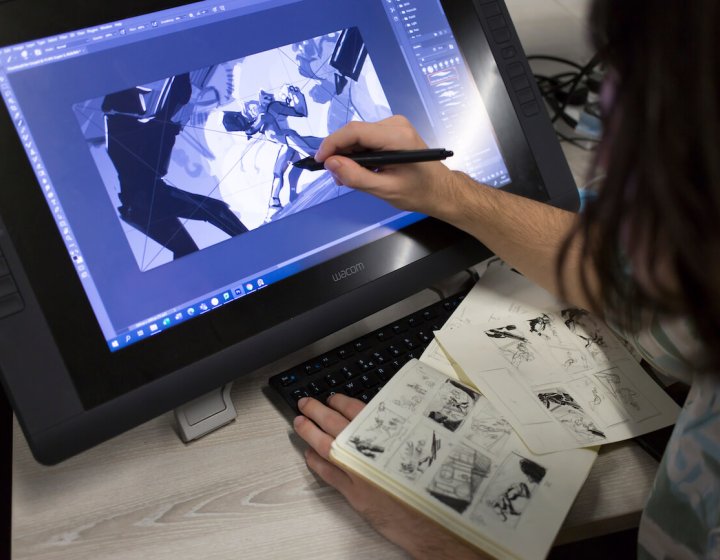
The difference between studying Game Art and Game Development: Art
15 October 2025
With two Game Art undergraduate degrees within the Games Academy, you might need a hand picking betw...
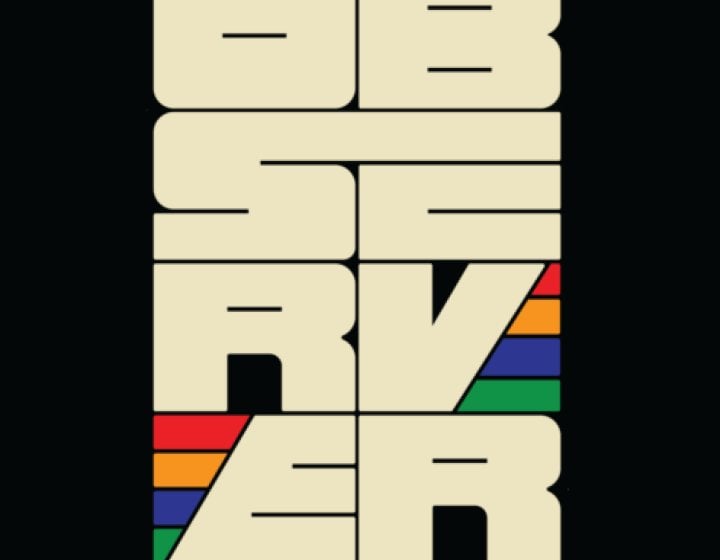
Lecturer’s game studio wins national award for championing games education
07 October 2025
Observer Interactive, the independent studio co-founded by Matty McGrory, Senior Lecturer in Indie G...

How a passion for cars led to a career in games and teaching Game Art
03 October 2025
Lee Walton’s route into games was anything but typical, moving from car design into roles at leadi...
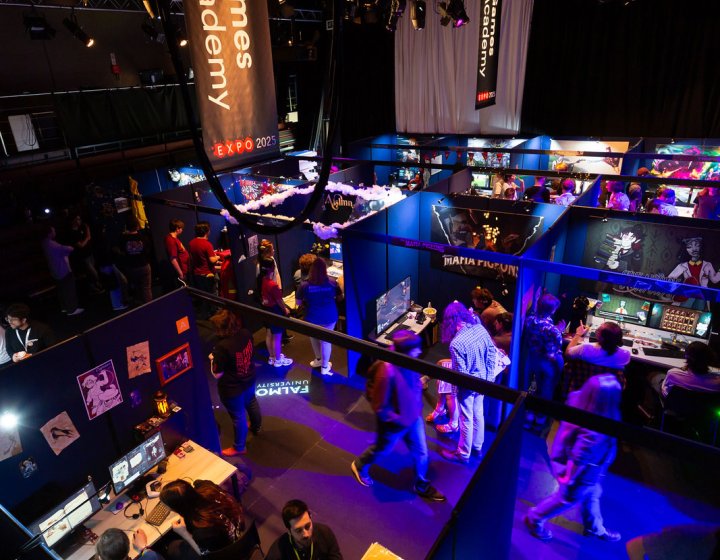
Forging Futures: How Falmouth University’s Games Academy became a catalyst for creativity and innovation
02 October 2025
When Falmouth University launched its Games Academy in 2015, it did so with a bold premise: that gam...
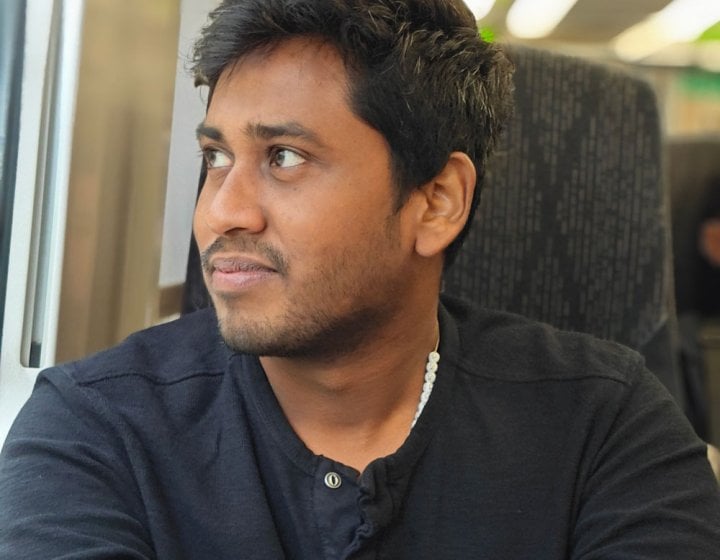
An international student’s journey on Falmouth’s MA Game Art
25 September 2025
For Anosh Saji, choosing to study a master’s in Game Art at Falmouth was about more than gaining s...
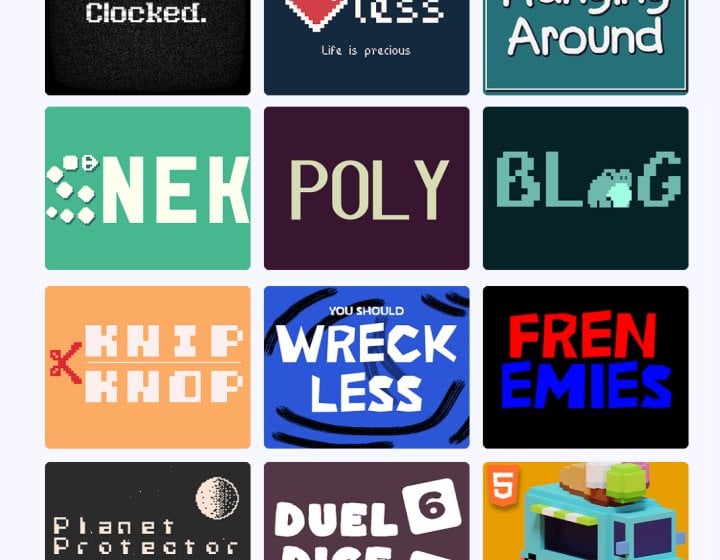
Indie Games Online student completes 12 games in 12 weeks project
23 September 2025
For his final major project on the Indie Game Development MA (Online), Mathijs Koning set himself a ...
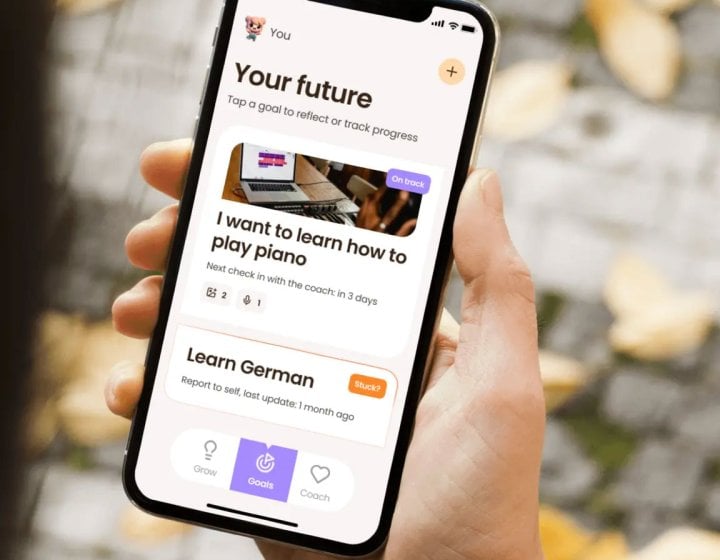
User Experience graduate on exploring scent, further study and starting a business
18 September 2025
When we think about digital design, we tend to think of screens, buttons and code. For User Experien...
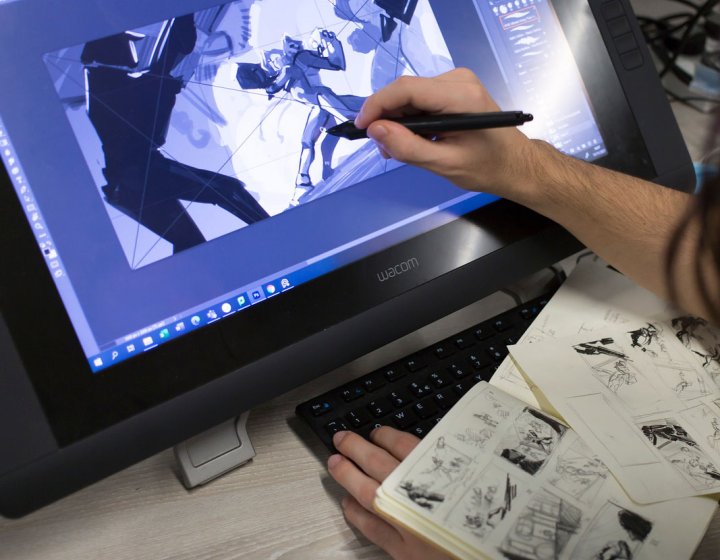
Game Art lecturer on character creation and collaboration
16 September 2025
We chatted with senior lecturer in Game Art, Michael Boylan, on how games are almost never made in i...
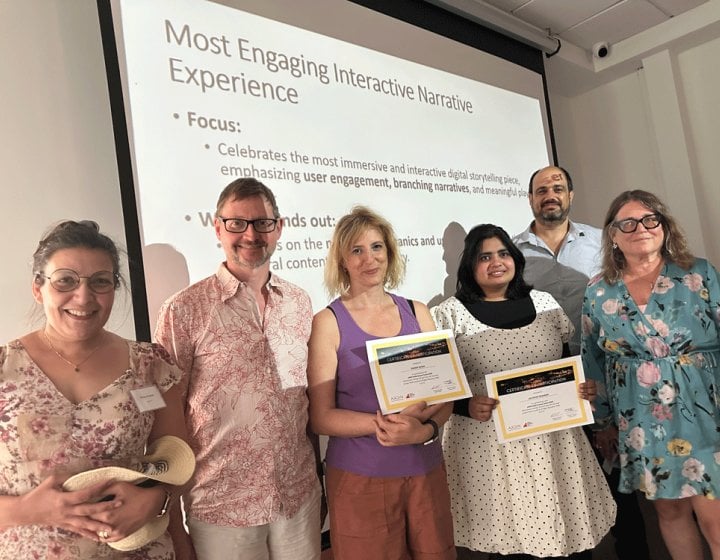
Meet the Game Programming lecturer at the cutting edge of interactive design
16 September 2025
Anjuman Shaheen, Lecturer in Game Programming MSc, has completed an intensive summer school in Malta...
Staff
You’ll be taught and supported by professional artists, game art practitioners and developers, and game-focused academics. Together they provide industry experience from working on titles including Grand Theft Auto, World of Warcraft, League of Legends, Project Gotham Racing and the Total War series.
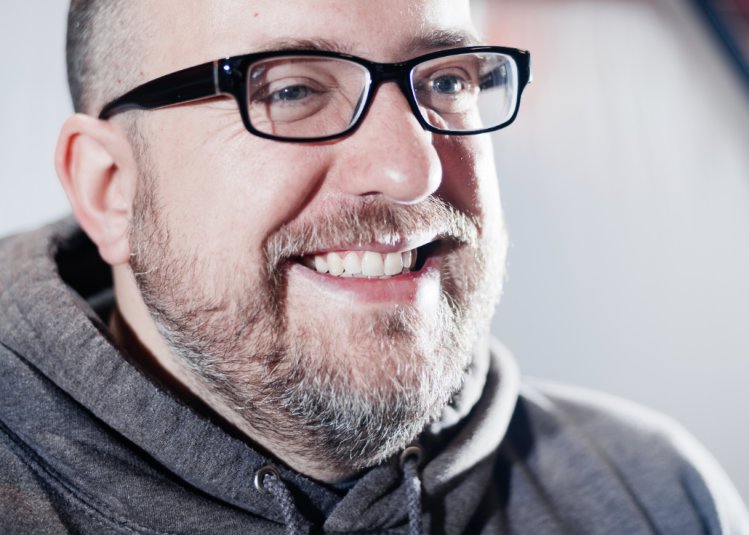
Dr Douglas Brown
Dean of the Faculty of Screen, Technology & Performance
Formerly employed by international games developer and publisher Square-Enix and credited on several...
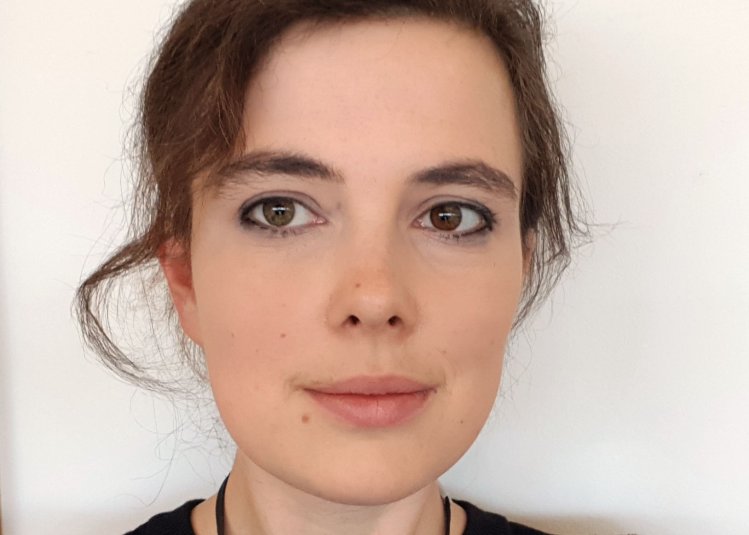
Phoebe Herring
Senior Lecturer
Phoebe Herring joined Falmouth University as a lecturer in BA(Hons) Game Art after freelancing on a ...
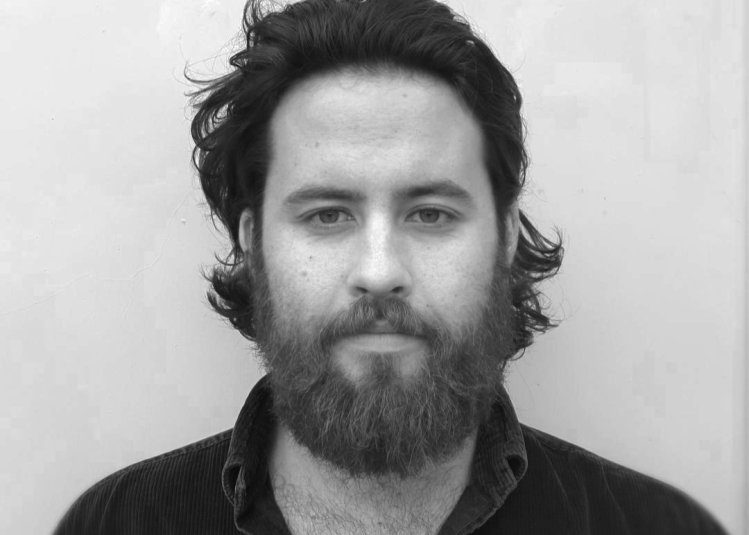
Jeremy West
Associate Lecturer, Game Development BA(Hons)
A graduate from Falmouth's Games Academy, Jeremy has spent the last six years both studying and maki...
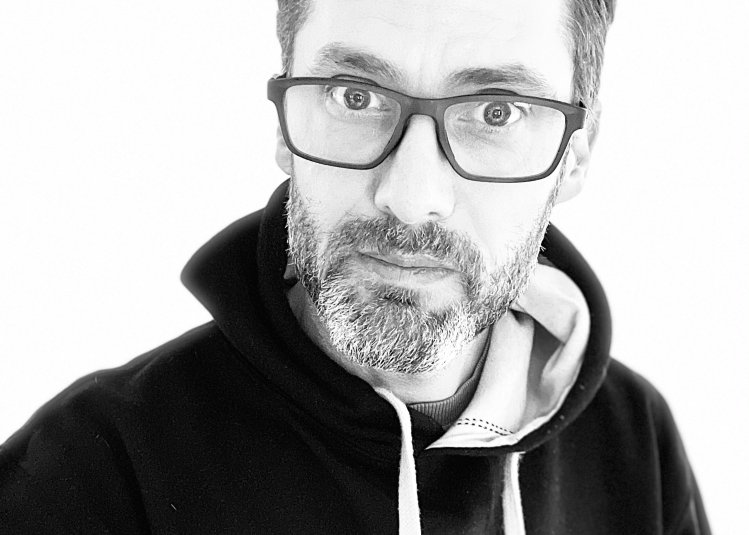
Lee Walton
Senior Lecturer, Game Art BA(Hons)
I trained to be a car stylist at PSA Peugeot studio in Paris during my Transportation Design BA at C...

Lee Montgomery
Course Leader
Lee joined Falmouth’s Games Academy as Course Leader for Game Art in 2021. Prior to working in the...
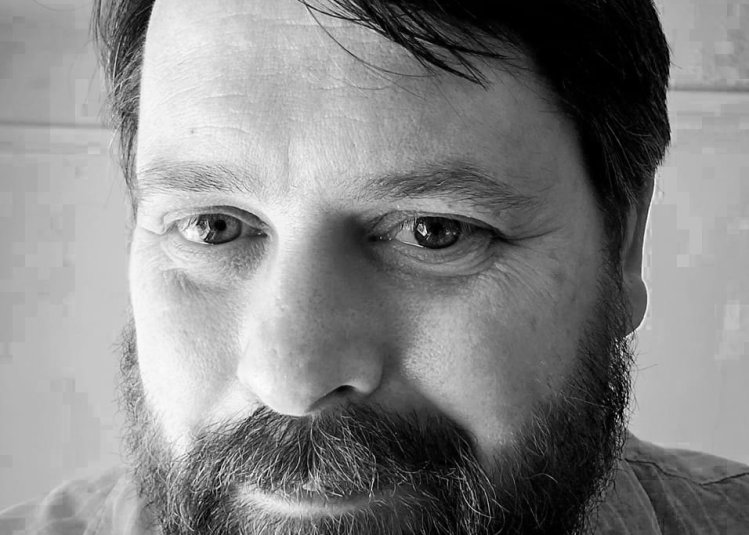
William Pryn
Senior Lecturer, Games Academy
A veteran 3D artist always looking out for new adventures and exploring new realms of possibility us...

Louise Crouch
Senior Technician, Games Academy
Louise graduated from Falmouth University in 2022 with a Masters degree in Game Art. She has develop...
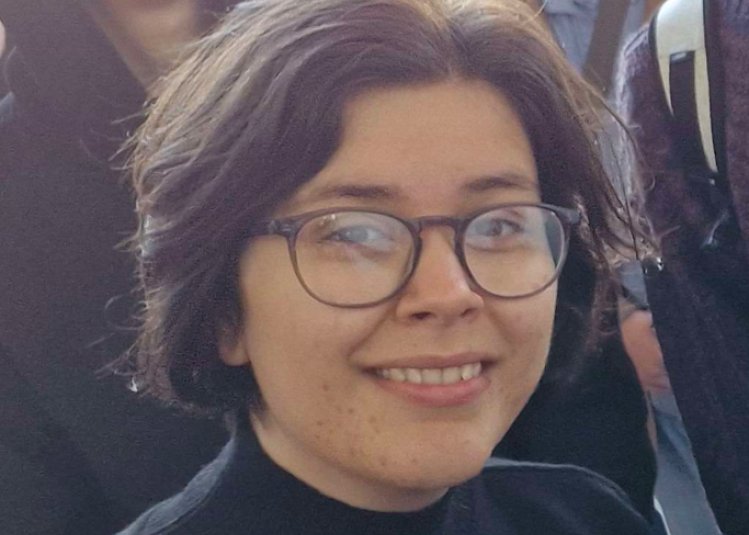
Andy Aksu
Associate Lecturer: Games
I'm Andy! I joined Falmouth in November 2025. I spent eight years in professional Source modding at ...
Some members of staff only teach on specific modules, and your course might not feature every staff member who teaches on the course.
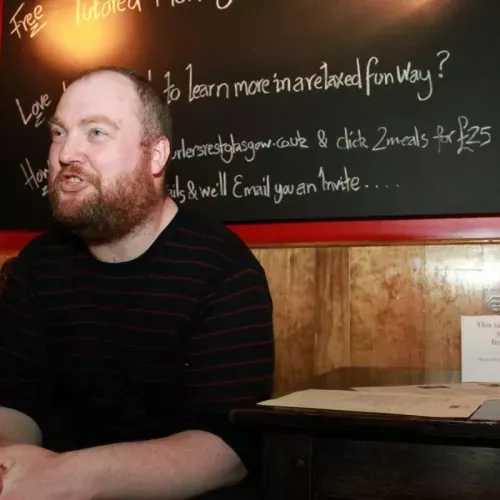
Got a question about this course?
If you want to know more about the course structure, our application requirements or what our graduates have gone on to achieve, our friendly course team is here to help.
Chat to BrianCareers
Our Game Art graduates have worked as:
- Character Artist at 10:10 Games
- Environment Artist at Fireproof
- Graduate 3D Artist at Frontier Studios
- Associate Visual Effects (VFX) Artist at Splash Damage
- User Interface (UI) and User Experience (UX) Artist at Firesprite Games
What can you do with a games degree?
Studying a degree in Computing or Games will open doors for an exciting and potentially lucrative career in a variety of industries.
Discover career opportunities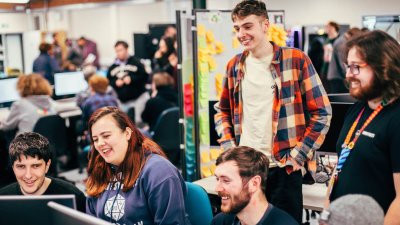
How to apply
Ready to apply for 2026?
You can apply for our undergraduate degrees via UCAS. You'll need our university UCAS code (F33) as well as your course code (which you'll find on your course page) for your application.
Applying as an international student?
There are a number of different ways to apply to study at Falmouth as an international student. Find out how you can become part of our creative community.
| Course route | UCAS code |
|---|---|
| Game Art BA(Hons) three year degree | W280 |
| Game Art BA(Hons) with Integrated Foundation Year | FY01 |
| Game Art BA(Hons) with professional placement | PY27 |

Application advice & interview information
Go to ToolkitFor starting your studies in 2026
UK applications: 14 January 2026 (for equal consideration)
Applications after the 14 January will be considered on a first-come, first-served as long as there are places available. Apply for this course now.
For starting your studies in 2027
UK applications: 13 January 2027 (for equal consideration)
International fee payers
International fee payers can apply throughout the year. But we recommend applying as early as possible, to make time for visa and travel arrangements.
We consider all applications on their own individual merit and potential.
Our diverse community is creative, innovative and entrepreneurial. We recognise that these qualities aren’t always shown in academic grades alone. That’s why, while many of our applicants achieve high academic grades, we also welcome those who can demonstrate their potential through an exceptional portfolio or performance.
We welcome applications from all subject backgrounds, whether you’ve specialised in STEM, the arts or humanities. Find out more about our Entry Requirements here.
Course routes & entry requirements
BA/BSc(Hons) three year degree: minimum 64 UCAS Tariff points
BA/BSc(Hons) four year degree with professional placement: minimum 64 UCAS Tariff points
BA/BSc(Hons) four year degree with Integrated Foundation Year: minimum 32 UCAS Tariff points
At Falmouth, we'll consider the equivalency of your specific qualifications against our entry requirements and support you through your application journey.
View our International Entry Requirements
Language requirements
For applicants whose first language is English we require you to have or be working towards GCSE English Language Grade 4 (C), or equivalent.
If English is not your first language you will need to meet the same standard which is equivalent to the IELTS Academic 6.0 overall score, with at least 5.5 in Reading, Writing, Speaking and Listening. We accept a range of in country equivalencies and approved tests.
If you need a student visa to study in the UK, you may need to take a recognised language test. You can read our English Language Requirements for more information.
Fees, costs & funding
Tuition fees
| Annual tuition fee | Student |
|---|---|
| £9,790 per year | Full-time UK |
| £19,950 per year | Full-time EU/international |
| £1,955 per professional placement year | Full-time UK and EU/international |
| £9,790 per Integrated Foundation Year | Full-time UK |
| £19,950 per Integrated Foundation Year | Full-time EU/international |
| Annual tuition fee | Student |
|---|---|
| £9,535 per year | Full-time UK |
| £17,950 per year | Full-time EU/international |
| £1,905 per professional placement year | Full-time UK and EU/international |
| £9,535 per Integrated Foundation Year | Full-time UK |
| £17,950 per Integrated Foundation Year | Full-time EU/international |
Tuition fees for September 2027 will be confirmed in summer 2026.
Tuition fees are set annually and are subject to review each year. The University may therefore raise tuition fees in the second or subsequent years of a course, in line with inflation and/or the maximum permitted by law or Government policy. Students will be notified of any changes as soon as possible.
The figures above don't include accommodation and living costs
Typical course costs
- £150 - Recurring annual costs (art materials)
- £70 - Recommended reading
- £30-£150 - Headset with microphone
- £25-£100 - Webcam
- £1500 - Laptop or desktop capable of running 3D modelling software
If you need to bring equipment or materials with you, these will be outlined in your Welcome Letter.
Laptop/computer
The latest advice about which computers we recommend you buy for your course is available here: https://github.com/Falmouth-Games-Academy/ga-computer-advice#readme
Essential
- Pencils- Royal & Langnickel sketching pencil set – approximately £5.56
- Sketchpad- Daler-Rowney A3 series, a spiral cartridge pad – approximately £10.40
- Sketchbook- Seawhite black cloth cover sketchbook 140gsm portrait A4 – approximately £7.49
- Pencil case- Derwent Canvas pencil wrap - approximately £9.99
- Grey-scale markers, they can either buy them as a set or individually. Sets range from £10 - £14. Individual markers are approx. £3.50
Headset with Microphone
You will need a headset with a microphone for some classes. We recommend purchasing a high-quality headset for your comfort. Manufacturers such as Sennheiser, Razer, HyperX and Corsair are rated highly by our current students. These can cost between £30 - £150.
Webcam
You will need a webcam in some teaching if you do not have a built-in webcam on your laptop. Manufacturers such as Logitech, Microsoft, and Razer are rated highly by our current students. These can cost between £25 - £100.
Internet Access
It is important that you secure sufficient access to the Internet as some materials are made available to you through our virtual learning environment. We recommend a fibre broadband connection if available, but a minimum of at least 5Mbps will be suitable for livestreaming content. If you have further questions, need more detailed advice or would like us to check the suitability of a particular model, then please email games.support@falmouth.ac.uk
Optional
- Watercolour- Windsor & Newton Cotman watercolour paints-12 half pans – approximately £15.43
- Watercolour brushes- Pro Arte professional artist academy paint brushes (set of 5) – approximately £7.10
- Acrylics- Daler-Rowney system 3 acrylic paint introduction set – approximately £13.80
- Acrylic brushes- Pro Arte brush wallet series C hog – approximately £9.95
Additional typical course costs for Integrated Foundation Year pathway
- £250 for materials
- A laptop/desktop computer
- Adobe Creative Suite
To engage in the digital learning activity, although you will be able to access IT suites on campus, you will benefit from a laptop to access the platforms and tools we use. Depending on your subject, you may need a specific type of computer. If you're unsure about what you might need, please contact our course advisors.
Typical course material costs:
£250 - Recurring annual costs may include: art/creative materials and costs towards your end of year show exhibition and can vary depending on material choices and specialism.
Study trips:
There are several field trips, and you will need to allow for some costs for student contributions towards coach hire and exhibition entry. Total annual cost of day trips approximately £60.
If you want to attend the planned week-long residential trip to London in the Spring of 2026 then you will need to plan for a £100 deposit payment shortly after arriving on the course, to secure a place, and to budget for a total trip cost of approx. £400 - to be paid in instalments.
Funding
For information about funding available, please visit our student funding pages.
Ask a student
What better way to find out about life at Falmouth University than by asking our current students?
From course details and academic support, to the social scene and settling in, our students are ready and available to answer any questions you might have. Simply set up your account, send them a question and they'll get back to you within 24 hours.
Similar courses
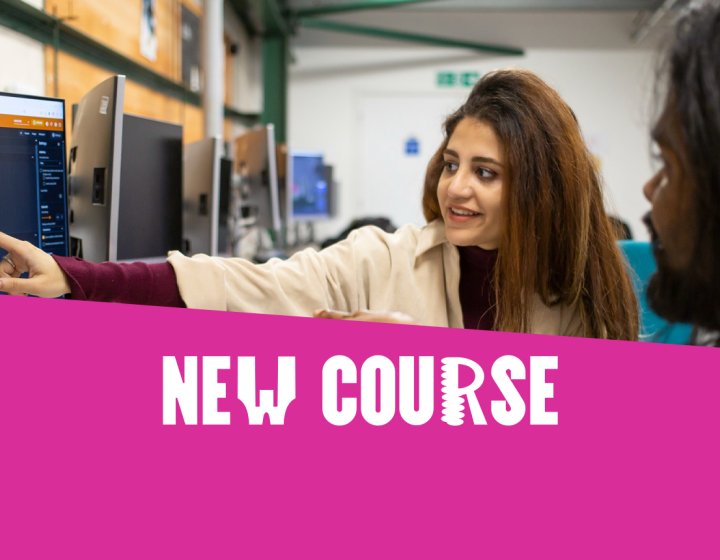
Artificial Intelligence BSc(Hons)
Artificial intelligence is transforming every corner of our world: from cars that drive themselves t...
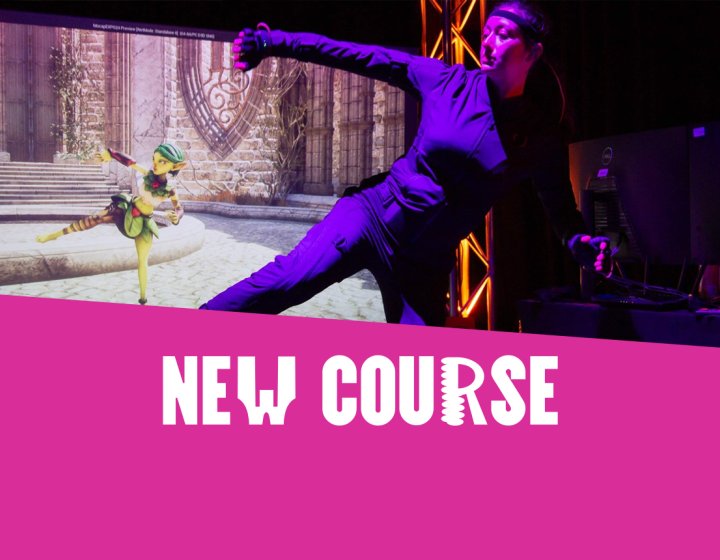
Creative Computing BSc(Hons)/BA(Hons)
Work across creative disciplines to explore creative coding, interactive systems, digital storytelli...
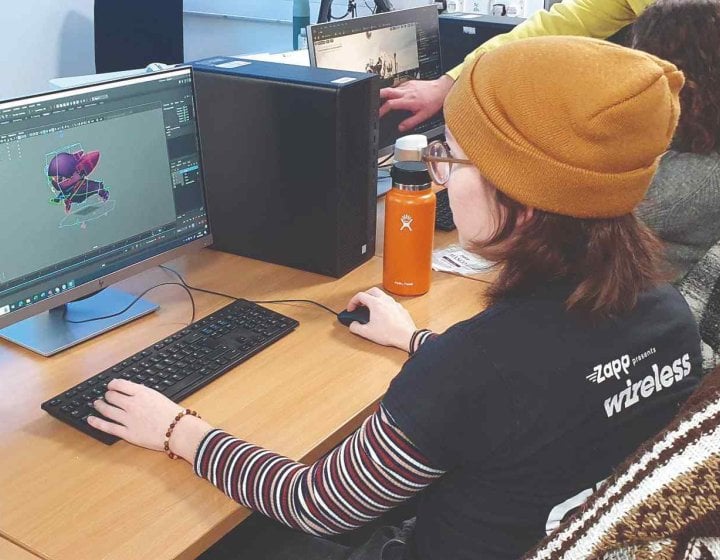
Game Animation BA(Hons)
Gain experience of working to a real-time animation pipeline and graduate with a rich portfolio of w...
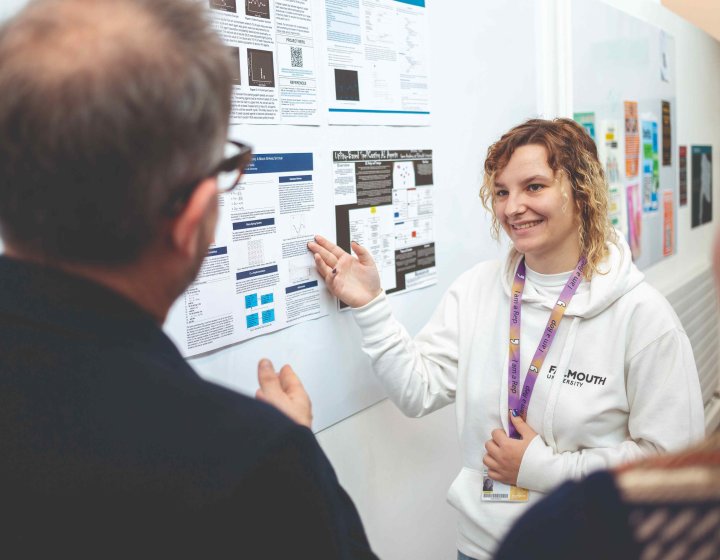
Computer Science BSc(Hons)
New immersive realities, data-rich interactions, automations and ever-more ubiquitous systems are sh...
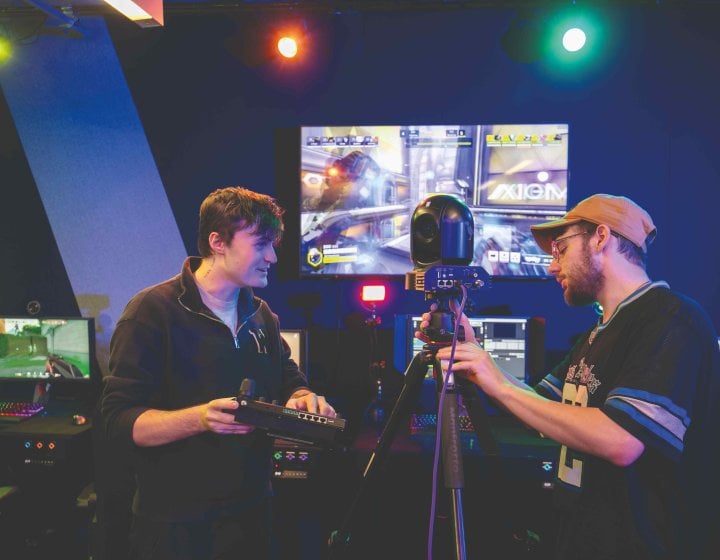
Esports & Livestreaming BA(Hons)
Immerse yourself in Esports culture on this degree, which offers a unique opportunity to be at the f...
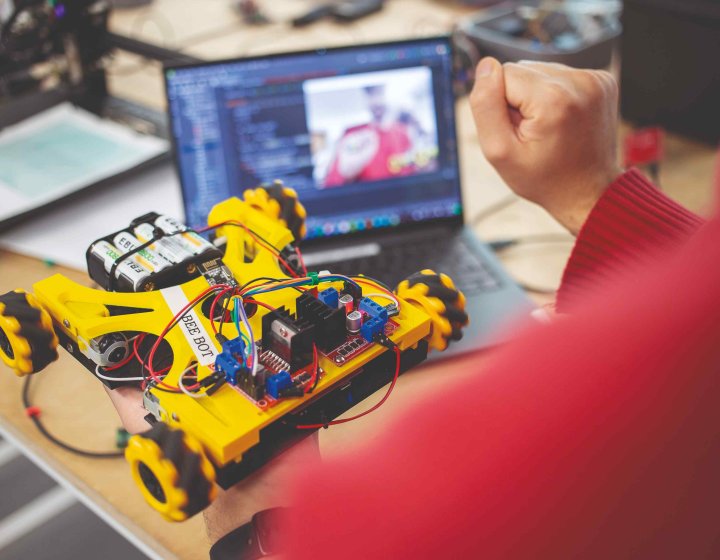
Robotics BSc(Hons)
Explore the world of artificial intelligence and create interactive robots that respond to the chall...
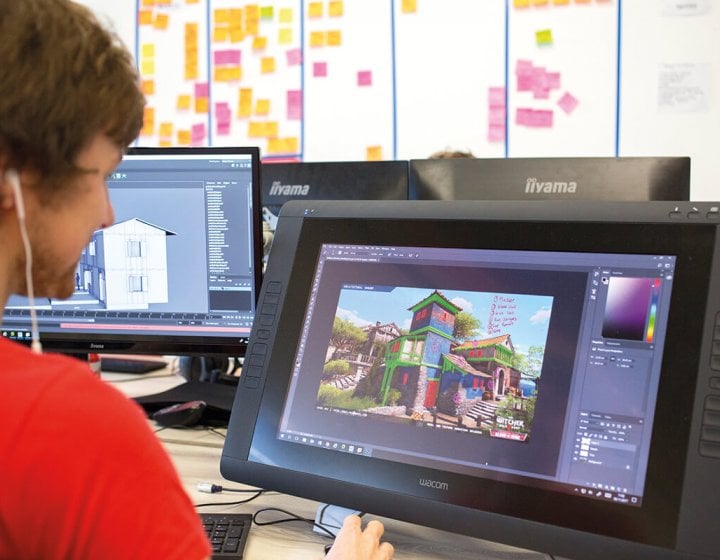
Game Development BA(Hons)
Join a community of people who have a passion for games. From day one, you’ll work as you would wi...
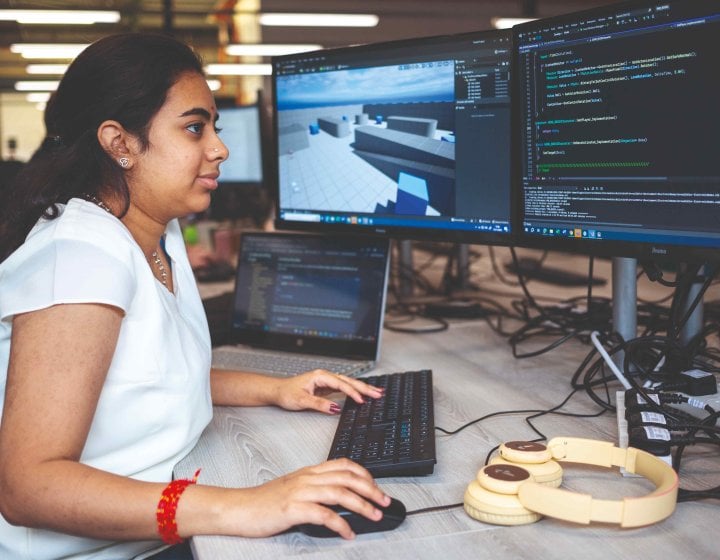
Computing for Games BSc(Hons)
Learn how to shape the games of the future by studying game development through the lens of computer...
Open Days and events
From visiting campus to online application advice, get all the information you need about joining our creative community.
Find an event
